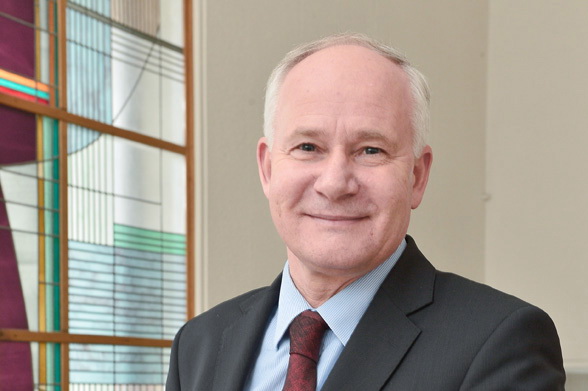
May 2nd, 2017, a Government working group, considering options for possible consolidation of Lithuania's institutions of higher education, announced its findings. Mykolas Romeris University (MRU) Rector Assoc. Prof. Algirdas Monkevičius gave an interview regarding the changes.
Rector Monkevičius, the working group has announced its proposals regarding optimization of institutions of higher education. What do you think?
As a matter of fact, several months ago we mentioned as one of the possiiblities of overhauling the network, of possibly integrating MRU with Vilnius University (VU) as part of our vision regarding optimization of universities' network. This integration process is natural, timely and we hope, will be an effective step in developing universities' studies and research in the capital.
Consolidation itself is not a goal. MRU and VU have one goal - to effectively consolidate the potential of intelectual capacities in both institutions of higher education. I do not doubt that by uniting different universities studies' and research potential that it is possibly to grow and strengthen the created value and its effectiveness. That is one of the ways to seriously begin to think about higher salaries for lecturers and researchers. We understand how important it is to increase the attractiveness and prestige of a career in academics without which it is impossible to create a knowledge and innovative society. It is important that our university community - students, lecturers, researchers and other staff members see a clear and safe perspective. Safe, first of all meaning the continuity of studies and work in better, not worse, conditions. I want to emphasize that our outlined university strategic mission remains unchanged.
In which research areas do you see the biggest potelntial, when consolidating with VU?
As for VU, we see the research potential first of all in the area of social sciences. MRU, up to now, is independently implementing the social sciences development strategy oriented to our profile areas. Already our University, by way of the network principle, within the context of the Vilnius Didlaukio academic community, is uniting the potential of existing institutions of learning. This includes the University of Applied Sciences Vilnius, the Vilnius Professional Services Center and other Baltupiai area education centers.
What are the biggest challenges, in your opinion?
So far the working group has presented its proposals. They need political will and consolidation on the part of all of the participants. A long road is still ahead. Success depends in part on a review of the system of universities' financing. We adhere to the position that financing should be tied with quality indicators and positive activity results. European and global experience indicates that similiar steps taken in optimizing university networks are successful in achieving target goals only when there is consistent, prolonged support from politicians. Also, when the university community is part of the process and their efforts are supported with the appropriate resources.
How will the consolidation process affect MRU students?
Up to now, the working group has presented its proposals, which need political will and consolidation on the part of participants, avoiding narrow interests. A long road lies ahead. It is difficult to foresee far ahead, but we believe in success and will continue to be active supporters of progressive changes. I want to emphasize that the University management will seek that the interests of our academic community will not suffer. That is why I want to reassure existing students regarding their studies and invite others, graduates, to select study programmes at MRU. I also want to say that MRU's Public Security Faculty, located in Kaunas, will remain part of Mykolas Romeris University's structure and there will be an effort to work towards closer cooperation with the Ministry of Interior regarding creation of a system of professional training and preparation of government officials. MRU will actively take part in this process.